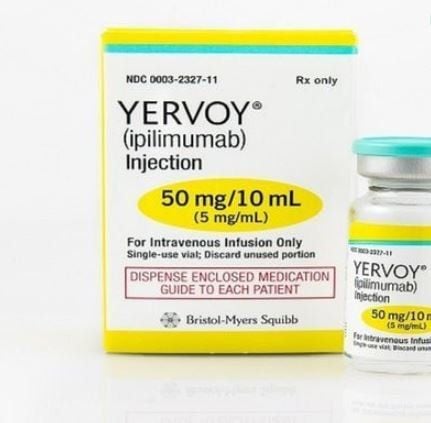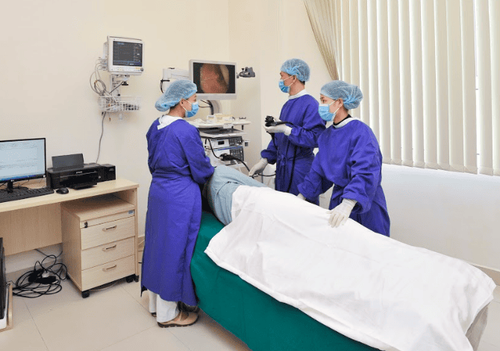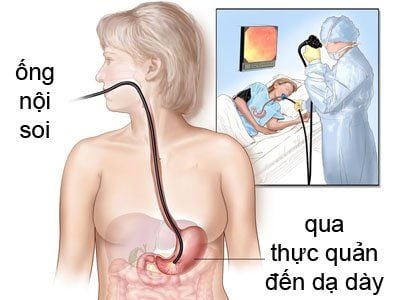This is an automatically translated article.
Article written by Master, Doctor Mai Vien Phuong - Gastroenterologist - Department of Medical Examination & Internal Medicine - Vinmec Central Park International General Hospital.
Since about 2000, the colonoscopy method has been widely recommended by doctors for patients over 50 years old to screen for colon cancer. But in recent years, some in the medical field have called for a change of tack. There are, they say, equally effective tests that are less invasive and less challenging than colonoscopy.
1. Colorectal cancer screening can save lives and reduce the risk of colon cancer
Colorectal cancer is the second leading cause of cancer death in the United States. The Centers for Disease Control and Prevention (CDC) reports that colon cancer killed more than 52,000 people in the United States in 2015.In general, however, it is a slow-growing cancer. It is treatable if it is detected early enough. That's why colonoscopy and other tests are available. Screening for colorectal cancer is on the rise in the United States. From 2014 to 2016, the number of U.S. adults screened each year increased by 3.3 million. That increase has led to a 30% drop in colon cancer mortality in people over the age of 50 over the past decade.
However, that leaves one in four adults aged 50 to 75 who have never been screened for colon cancer.
In a presentation at the beginning of March 2015 (Crectal Cancer Awareness Month), the American Cancer Society estimated that 21,000 deaths from colon cancer would be prevented each year by 2030.
Dr. Richard Wender, director of the society's Office of Cancer Control, said that to achieve that goal, the medical community will need to start recommending a variety of screening options.
A survey of 997 middle-aged adults published in Internal Medicine News found that only 38% of those advised by their healthcare provider to have a colonoscopy, the remaining 67% were advised to have a test based on feces.
2. Why don't people like colonoscopy?
People's unwillingness to go for a colonoscopy is a major reason for low screening rates. One of the reasons for the above unwillingness is that the method is invasive and uncomfortable.In this procedure, the doctor inserts a long, flexible tube called a colonoscope into the colon and looks for polyps. If a tumor is found, it can be removed using a wire loop through the colonoscope. Patients are usually sedated during the examination.
24 hours before the procedure is also not completely comfortable. Endoscopy recipients must spend more than a day on a paleo diet, followed by a liquid diet. Next, they drank a quart of a solution designed to clear the colon from the inside by causing severe diarrhea. Why do I have to go through such a nasty check? , people often wonder. The endoscopy procedure also takes quite a bit of time. Those undergoing endoscopy should take at least one day off work. They also need to find someone to drive them home after the endoscopy is over.
There is also the issue of cost. Not all insurance plans cover the full cost of a colonoscopy. If a tumor is found, Medicare will sometimes change the description of the test from “screening” to “diagnostic.” This means that the patient has to pay extra. People without insurance cannot pay for this procedure. Even the cost of pre-procedure bowel cleansing fluids and other sums can be daunting for low-income patients. The uninsured are the only part of the US population where colorectal cancer screening rates have not increased.
Dr. Aasma Shaukat, a member of the American Gastroenterology Association added, patients still lack awareness of the need for colon cancer screening. Many people over 50 don't know the risks of colon cancer, she said.
Shaukat, also an associate professor of medicine at the University of Minnesota, added: “We encourage physicians to discuss this with their patients.”
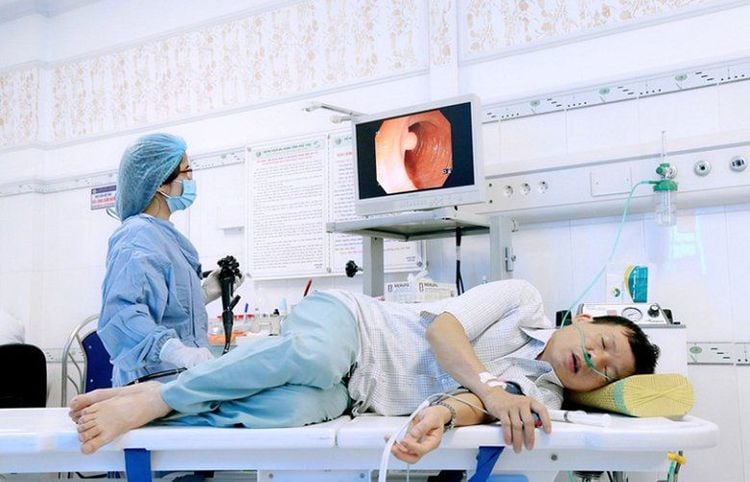
3. Benefits of Endoscopy
Screening is important because colorectal cancer often has no signs or symptoms in its early stages. Many people don't have any obvious symptoms until the cancer has grown, spread, and is harder to treat. Colorectal cancer develops from small tumors called polyps in the colon, also known as the large intestine and rectum.Screening is recommended for people between the ages of 50 and 75. Screening is not recommended for most people over 75. “Screening allows us to find colorectal cancer early, while it still has a presence,” said Commander Djenaba Joseph, MD, MPH, medical director of the CDC's Colorectal Cancer Control Program. treatable. If we detect colorectal cancer early, more than 95% of patients are still alive after 5 years. If we find out after it has grown and spread, then the treatment is not always effective.”
Colonoscopy is the most common colorectal cancer screening test in the United States. Most medical professionals agree that this is a great way to detect colon cancer. In the past, colonoscopy has been reported to be more than 90% effective. Despite this, many point out, there has never been a thorough study of the accuracy of endoscopy. Dr Shaukat said three such studies are underway but results are not expected within seven years.
Recent research has shown that colonoscopy is not as effective in detecting cancer in the right colon as it is in the left colon. However, endoscopy is still a worthwhile test if it is done properly. A common feature of colonoscopy is that if no polyps are found, repeat colonoscopy is not recommended in the next 10 years.
For people with risk factors such as a family history of colon cancer or certain medical conditions, such as inflammatory bowel disease, Lynch syndrome, or familial adenomatous polyposis; Endoscopy is the only recommended test and is usually recommended at a younger age.
4. Advantages of Colonoscopy Alternatives
People with no family history of colorectal disease or other risk factors have a variety of alternative tests to choose from. Some alternative tests have been around for some time and are now being looked at more closely. Experts say that doctors should recommend them more to patients, especially those who are unwilling or unable to perform endoscopy.One option is fecal immunochemical tests or FITs, approved by the Food and Drug Administration (FDA). It is used as the first line colorectal cancer screening test in most countries around the world; including Canada, Israel, the Netherlands, Italy, France, Taiwan, China, Korea, Scotland and soon England. It is proposed as a screening test of choice under the European Union Guidelines.
FIT is a stool test and can be ordered by your doctor. There are different types of FIT tests, both wet and dry. If your FIT test is negative, repeat the test a year later. If the test result is positive, you should schedule a colonoscopy. FIT costs about $20 or less and is covered by Medicare and most health plans.
Only a single FIT test can detect about 73% of colorectal cancer cases. But because you use the FIT every year, 10 exams in 10 years makes it just like a colonoscopy every 10 years. The US National Colorectal Cancer Roundtable has confirmed that the FIT-based test is an effective means of screening for general colon cancer.
Other tests to screen for colorectal cancer include stool DNA or sDNA testing. It's another home stool test ordered by your doctor. Tests that look for blood and abnormal DNA in the stool may indicate the presence of colon cancer or precancerous polyps. If the test is positive, you will need a colonoscopy to remove any cancerous masses or polyps.
Highly sensitive fecal occult blood tests (FOBT), including sensitive guaiac test and FIT. Modeling studies have shown that highly sensitive FOBT is as effective as endoscopy if performed annually.
The latest stool test is called Cologuard . It is recommended to be done every three years.
The American Cancer Society and other organizations also recommend some other screening tests such as flexible sigmoidoscopy. In this procedure, a short, flexible tube - a colonoscope - is inserted into the rectum to look for tumors and cancer in the lower part of the colon. This method also requires you to prepare for cleaning and can cause cramping. This test is recommended every 5 years but is not commonly used in the United States because it is not very different from conventional endoscopy.
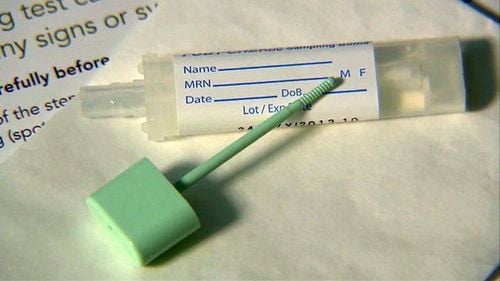
5. Role of virtual colonoscopy
The last recommended test is a CT colonoscopy, sometimes called a virtual colonoscopy. This is an X-ray procedure to examine the colon. It also requires a special diet and bowel cleansing just like a regular colonoscopy.Virtual colonoscopy does not require sedation but can be painful because the colon must be inflated with gas for better visualization. If you find lumps or other abnormalities, you will need regular optical colonoscopy to remove the tumors.
With all these alternatives, health experts say, there's no reason people shouldn't get screened. Colon cancer is one of the few cancers that have multiple screening tests, says Dr. Shaukat.
There are patients who worry about the accuracy of some alternative tests but experts say, no test, including colonoscopy, is 100% guaranteed to have no polyps or cancer in your colon or you will not develop colorectal cancer during the recommended 10-year period between screenings.
No test method is perfect. Whichever test you choose, health experts say, it's important that you get screened. They say, if you're between the ages of 50 and 75, colon cancer screening is an absolute must. “The only thing you should ask yourself and your doctor is which test is right for you,” says Dr. Deborah Fisher, MHS, associate professor of medicine at Duke University. There is no one test method that works best for everyone.”
Most colorectal cancers are curable, as long as they are caught early and treated immediately. Vinmec International General Hospital is a large hospital chain, the first general hospital in Vietnam to meet global medical standards. Currently, Vinmec is a leading medical facility in the field of colorectal cancer screening and detection.
Vinmec International General Hospital is one of the hospitals that ensures modern equipment, a team of doctors, good and experienced staff with leading professors and doctors at home and abroad. Preventive, advanced tests allow the implementation of the most advanced colorectal cancer screening techniques.
Please dial HOTLINE for more information or register for an appointment HERE. Download MyVinmec app to make appointments faster and to manage your bookings easily.






